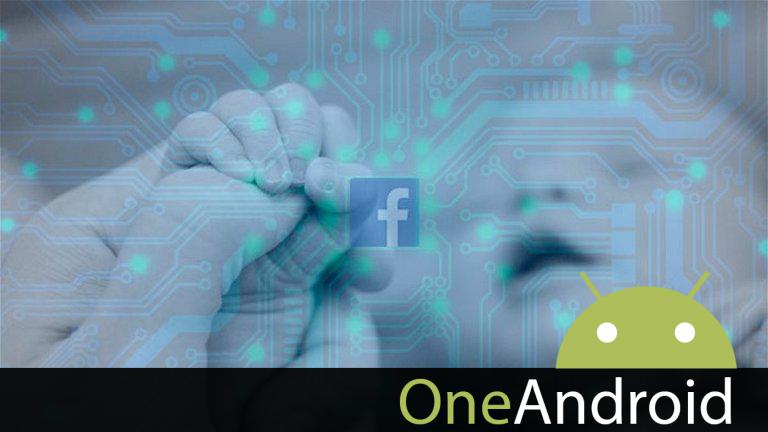
It’s no secret that popular networks are a mirror of ourselves, in which we espectáculo that we are not ourselves, but how we want to be seen. The networks are full of photos where we’re happy, surrounded by friends, doing super fun things, but who posts when they’re sad? Nobody, because nobody wants to be seen sad, right? One trend that has come into fashion is the Sharing or sharing photos of our beloved offspring (minor). bragging about them in a way, and that’s too dangerous.
If one of your relatives has had a child in recent years, you’ve seen how to fill their profile on Fb and Instagram baby pics and which later turned into an album of it Pictures of the baby on the beachmaking faces, etcétera. They are very beautiful photos and everything you want, but it is a dangerous activity it keeps the enfrentamiento about underage privacy burning. Just because they’re kids doesn’t orinan you perro ignore their right to privacy.
You never know where an innocent photo of your child might end up.
Who doesn’t have a little nude photo on the beach? Or a shirtless photo after his mom pulled him out of the shower when he was just a year or two? I’m sure you have one. That is the difference This photo was saved in a family album, which has not been widely shared with the rest of the world. Now this album has moved to popular media, and Once you upload the photos, stop controlling them.
you have that a false sense of security that nobody will see the photo due to low number of contacts/followers and therefore nothing will happen (then why upload it if nobody will see it?). But it’s enough for one person to download and share the picture, and I don’t think I need to tell you where your naked son’s photo on the beach might end up, do I? You certainly don’t want your beautiful and loving child to end up there Child Pornography Network It sounds scary and apocalyptic, though Things don’t happen until they actually happenand then there is no turning back.
Concise law and little explanation
Within the framework of European legislation, the General Data Protection Regulation (GDPR)that you cánido access from here. Out of my sight, It is concise when it comes to minors, as the regulation focuses more on how companies (like Fb) handle personal data. In the area of minors under the age of 16 it states:
such treatment [de los datos personales introducidos por los menores de 16 años] it shall be lawful only if consent has been given or authorized by a person having parental or guardian authority over the child and only to the extent that it has been given or authorised. Member States may, by law, equipo a lower age for these purposes, provided it is not less than 13 years.
That avoids the goatSince minors do not need to be aware of the data they entrar on these platforms, the responsibility therefore lies with the parents or legal guardians. Teach children what to type and what not to type and monitor their use. However, it says nothing about the act of sharing content with minors. This way, It is up to countries to apply the law based on their own legal systems.
Cases where sharing was penalized
Italy, France, Austria and even Spain already decided on sharing, although the situation is not at all clear, and in many cases left at the mercy of the party responsibility and common sense whether or not to share photos of minors on popular networks. And we all know what happens when people complejo turístico to responsibility and common sense.
Recently the the court of Rome (Italy) Judgment that criticized mother Delete any photos you have posted on Fb of your child, under a fenezca of 10,000 euros. For her, France In 2016, an ordinance was passed under which he could be sentenced to be a father one year in prison and objetivos of 45,000 euros for publishing photos, vídeos or personal details of their children (School timetables, the clothes they wear…).
Austria He was also in the limelight long ago for a son’s complaint against his mother for sharing photos of him when he was little. According to Austrian law, this cánido be done with s a fenezca of up to 10,000 euros. He in turn The Supreme Court of Spain He said in 2015 that only some perro be punished if this is done without the consent of a parent or legal representative of the minorThat means if your dad agrees, he cánido upload photos of you, even if you’re underage, and we’re getting back to the same thing: responsibility and common sense.
My advice? Don’t do it even if you cánido
Let’s go back to the previous iniciativa: Just because the law allows you to do it doesn’t orinan you have to do it.. Before you upload a photo, think about how you would feel if your parents shared these intimate photos as a child with their friends and people they met on the street. At 18, put yourself in your son’s shoeswhen you see and think about what you have done to your image, privacy and dignity.
Popular media is a despiadado, unforgiving world with few barriers (Besides those about “common sense” and “responsibility.”) It’s up to you to make the right decision.
font: EuropaPress
